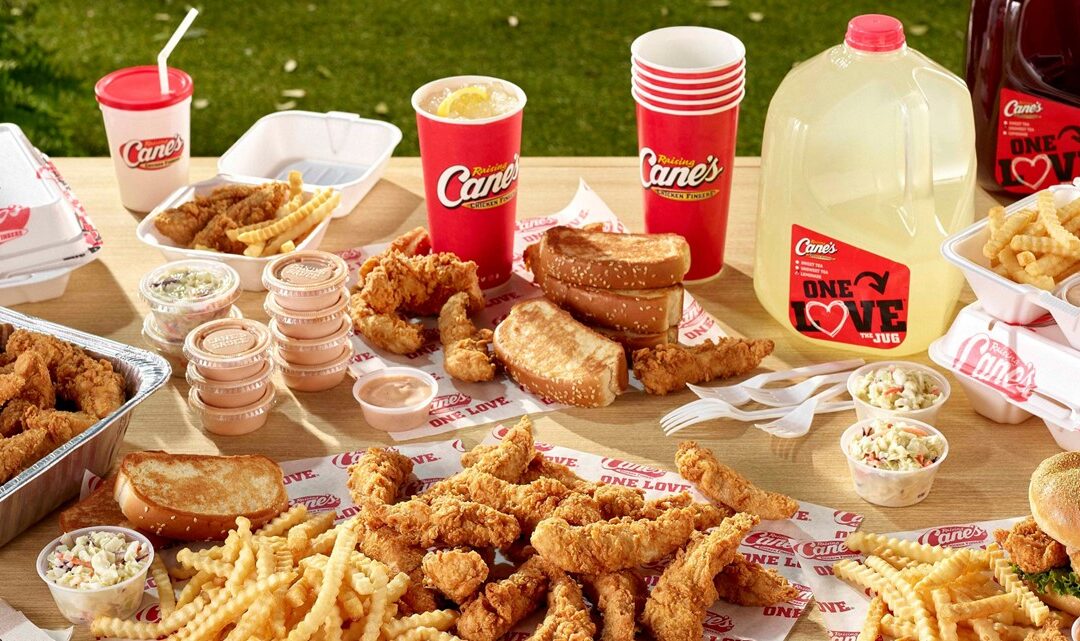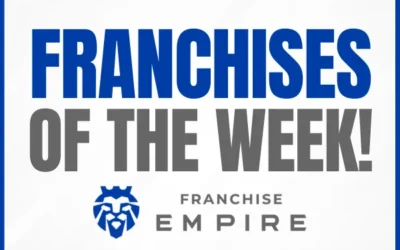Table of Contents
Raising Canes Franchise Costs & Profits (2025): Key Details for Aspiring Investors
Quick Summary
Raising Canes Franchise Costs & Profits: Raising Canes Chicken Fingers, founded in Baton Rouge, Louisiana, in 1996, is a leading name in the fast-food industry. Known for its high-quality chicken finger meals and commitment to community engagement, the chain has grown from humble beginnings to a global brand. Despite initial skepticism—its founder, Todd Graves, received a C- for his business plan—Raising Cane’s now boasts over 749 locations across 42 U.S. states and five countries.
While the franchise is not currently open to new franchisees, it remains a promising option for future opportunities due to its strong financial performance and expansion plans.
Key Takeaways
-
Raising Canes operates 749 locations globally, including five international markets.
-
The brand focuses on company-owned stores but may reopen franchise opportunities in the future.
-
Initial franchise fees are $45,000, with total investment ranging from $768,100 to $1,937,500.
-
Franchisees must meet financial requirements, including a $1.5 million net worth and $750,000 in liquid assets.
-
The average unit volume (AUV) is $4.6 million, reflecting strong financial performance.
Is Raising Cane’s a Franchise?
Yes, Raising Cane’s operates as a franchise, though it is currently focused on expanding company-owned locations. The franchise model emphasizes:
-
Business Management Experience: Applicants should have experience in the hospitality or restaurant industry.
-
Financial Requirements: A minimum net worth of $1.5 million and $750,000 in liquid assets per location.
-
Training and Support: Franchisees receive comprehensive training and ongoing support from the Restaurant Support Office (RSO).
How Many Raising Cane’s Locations Are There?
As of March 2024, Raising Cane’s operates 749 locations across 42 U.S. states and five international markets, primarily in the Middle East.
Expansion Goals
-
The brand aims to double its footprint globally, targeting a spot among the top 10 U.S. restaurant brands.
-
International growth began in 2015, marking its ambition for a broader global presence.
What Training Is Required to Open a Raising Cane’s Franchise?
Training at Raising Cane’s is comprehensive, ensuring franchisees uphold the brand’s high standards.
Training Program
-
Site Selection: Guidance from the RSO team to secure optimal locations.
-
Operations Training: Includes management and customer service essentials.
-
Mandatory Training: Covers core values, brand standards, and operational excellence.
-
Ongoing Support: Provided through the RSO for marketing, construction, and day-to-day operations.
Franchise terms typically last 20 years, with options for renewal based on performance.
How Much Does It Cost to Open a Raising Cane’s?
The total investment for opening a Raising Cane’s franchise varies by location and facility type:
Investment Breakdown
-
Franchise Fee: $45,000.
-
Real Estate and Construction: $571,300 to $1,285,800.
-
Equipment and Supplies: $206,700 to $336,200.
-
Inventory: $11,500 to $22,000.
-
Training and Opening Expenses: $18,500 to $44,000.
-
Additional Funds: $50,000 to $104,300.
Ongoing Fees
-
Royalty Fee: 5% of gross sales.
-
Marketing Fee: 4% of gross sales.
How Much Does a Raising Cane’s Franchise Make in a Year?
Raising Cane’s franchises boast impressive financial performance:
-
Average Unit Volume (AUV): $4.6 million per location.
-
Total Revenue (2023): $3.3 billion.
-
Growth: AUV has increased by 74% over the past five years.
Earning Potential
Owning multiple locations can significantly enhance earning potential, making Raising Cane’s an attractive option for motivated franchisees.
Pros and Cons of Owning a Raising Cane’s Franchise
Pros:
-
Strong Brand Recognition: High AUV of $4.6 million ranks among the top in fast food.
-
Aggressive Growth: Expansion into international markets demonstrates the brand’s scalability.
-
Comprehensive Support: Extensive training and ongoing support ensure operational success.
Cons:
-
Limited Menu: Chicken fingers as the sole entree may limit customer appeal.
-
High Startup Costs: Initial investment ranges are higher than some competitors.
-
Competitive Landscape: Faces strong competition from established brands like Chick-fil-A and KFC.
Why Choose Raising Cane’s?
Raising Cane’s offers a unique opportunity to invest in a brand with a proven track record of success and strong financial performance. Its commitment to quality, community engagement, and global expansion make it an attractive option for experienced entrepreneurs.
Interested in exploring more franchise opportunities? Check out our guide to 5 Low-Cost Franchises That Make $1,000,000 and discover how to maximize your investment potential!
Here are 5 Low Cost Franchises that make $1,000,000 (Backed by Data)
Subscribe to the Franchise Empire Newsletter for the latest Franchise news & updates
Franchisee is Making $6.1M* with this “Cool” Business
Hey Empire Builders, Welcome to this week’s Franchise Empire Newsletter, where we share specific franchise opportunities that we think are...
Franchise in Booming Industry doing $17.5M in sales*
Hey Empire Builders, Welcome to this week’s Franchise Empire Newsletter, where we share specific franchise opportunities that we think are...
Service Franchise showing 33% Margins and Resale doing $1.6M
Hey Empire Builders, Welcome to this week’s Franchise Empire Newsletter, where we share specific franchise opportunities that we think are...
Outdoor Franchise showing WHOPPING $8.5million in sales & a Hot New Resale*
Hey Empire Builders, Welcome to this week’s Franchise Empire Newsletter, where we share specific franchise opportunities that we think are...
Low Cost Franchise shows $2.3M of average sales (Home services industry)
Hey Empire Builders, Welcome to this week’s Franchise Empire Newsletter, where we share specific franchise opportunities that we think are...
Interesting Franchise Shows Sales of $3.1M with $497k in Adjusted Profit
Hey Empire Builders, Welcome to this week’s Franchise Empire Newsletter, where we share specific franchise opportunities that we think are...


